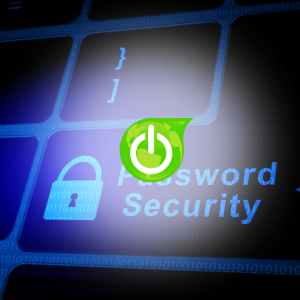 As discussed in our last blog , password managers play a vital role in protecting our online accounts. By securely storing all your passwords in one place, they make managing multiple accounts much easier. But are they invulnerable to hacking?
As discussed in our last blog , password managers play a vital role in protecting our online accounts. By securely storing all your passwords in one place, they make managing multiple accounts much easier. But are they invulnerable to hacking?
What Are Password Managers?
Think of password managers as digital safes that securely store your login credentials. Instead of remembering dozens of passwords, you only need to recall one master password to access your safe. This simplifies managing multiple accounts while keeping them secure.
How Do Password Managers Work?
Password managers rely on encryption to protect your data. When you save a password, the tool converts it into an unreadable format that can only be accessed with the right decryption key—your master password. This ensures that even if someone gains access to the data, it remains impossible to read without your key.
Why Should You Use a Password Manager?
Password managers combine convenience and security. With so many accounts requiring strong, unique passwords, it is nearly impossible to remember them all. A password manager generates, stores, and manages these credentials, ensuring your accounts remain secure without the hassle of memorization.
Are Password Managers Vulnerable to Hacking?
While password managers are designed with robust security, no system is completely foolproof. Hackers constantly look for ways to exploit vulnerabilities. However, breaching a well-designed password manager is an exceptionally difficult task due to the advanced security measures they use.
Key Security Features of Password Managers
- Strong Encryption: Password managers use advanced encryption protocols, making stored data nearly impossible for hackers to decode.
- Two-Factor Authentication (2FA): By requiring a secondary verification method, 2FA adds an extra layer of protection to your account.
Despite these safeguards, your password manager’s security depends largely on how you use it. For instance, if a hacker gains access to your master password, your stored data could be at risk.
How to Protect Your Password Manager
Follow these best practices to keep your password manager secure:
- Create a Strong Master Password. Use a long, unique combination of letters, numbers, and symbols that’s difficult to guess.
- Enable Two-Factor Authentication. This additional security step ensures that even if someone discovers your password, they will need a second code to access your account.
- Keep Software Updated. Regular updates fix vulnerabilities and enhance the security of your password manager.
What Happens If a Password Manager Is Hacked?
If a password manager is compromised, it could expose all your stored credentials. However, strong encryption often keeps your data safe, even in such scenarios.
Immediate Steps to Take
- Change Your Master Password: Do this as soon as possible.
- Update Affected Account Passwords: Identify accounts at risk and reset their credentials immediately.
Long-Term Considerations
- Monitor news and alerts about your password manager’s security.
- If your manager has a history of breaches, consider switching to a more reliable option.
Is Using a Password Manager Worth the Risk?
Despite potential vulnerabilities, the benefits of password managers far outweigh the risks. They enable you to create and manage strong, unique passwords for every account, significantly enhancing your online security.
Key Advantages
- Simplified password management.
- Reduced risk of password reuse and weak passwords.
- Enhanced protection against cyber threats.
Choosing the Right Password Manager
Select a reputable password manager with strong encryption, 2FA, and positive reviews. Research thoroughly to ensure the tool meets your security and usability needs.
Password managers are powerful tools for safeguarding your online information. By following best practices—like creating a strong master password, enabling 2FA, and keeping your software updated—you can enjoy the convenience and security they offer.
If you need assistance selecting or setting up a password manager, please contact us!
